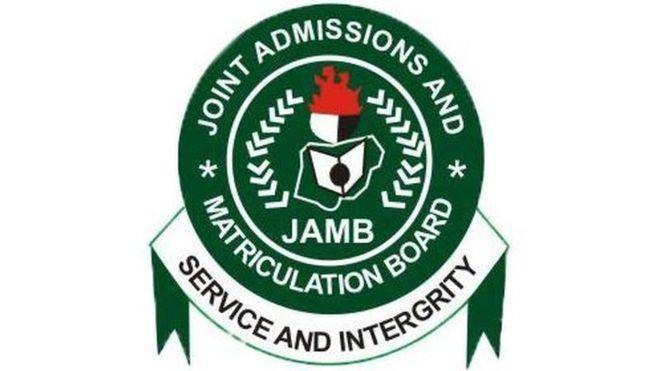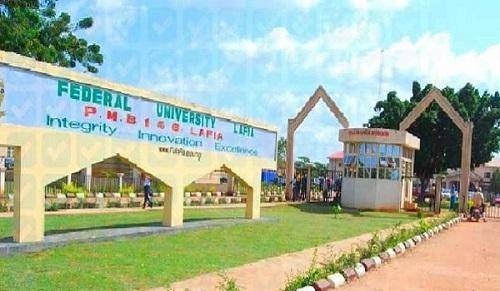
Interview
Chief Nyesom Wike, legal practitioner, politician and public administrator, is part of the team saddled with the Herculean task of repositioning Nigeria's education sector, as the Minister of State for Education. Unlike a core civil servant, Wike believes in achieving results without undue protocols.
According to him, Nigerians are in a hurry to see a change and are not interested in excuses as long as there are challenges capable of drawing back the education system, which holds the key to the nation's socio-economic advancement.
In this interview, Wike speaks on what the Federal Government has so far achieved, what it is doing to lift the education sector, meet the Millennium Development Goals, MDGs', targets and make Nigeria proud in the comity of nations. Excerpts:
How far is it true that the Federal Government has scrapped JAMB and NECO?
This government has not scrapped any of those institutions. It is true that a committee was raised by government headed by the former Head of the Civil Service of the Federation, Steve Orosanya, to look into the number of agencies and departments in the country and to recommend ways of saving costs.
That committee made some recommendations to government, which, in turn, set up another panel to write a White Paper on it. As we speak, the White Paper Committee is yet to issue its recommendations to government and I do not know where people are getting the rumours they are spreading across the country, causing apprehension in the process.
How do people jump into conclusion? Probably somebody might have discussed an opinion and somebody might have said,' look, this is what I would have done if I were on the committee', and somebody takes that as government position.
Even assuming that it happens the way people are suggesting, will that reduce the number of intake into universities? As far as I know, it is not the number of exams you write that increases the number of intake, but the facilities that the institutions have on ground.
For example, if a university is supposed to admit one thousand students for a particular year, that is just what it can take and not the number of people who might have written and passed JAMB. No. So, it is not like if JAMB conducts exams, people would have more access to university education in Nigeria. Or that people would not have access to universities if it no longer conducts the examinations.
We know that the National Examinations Council, NECO, came in to check the monopoly that the West African Examinations Council, WAEC, was enjoying. If it is cancelled, Nigerians will return to the dark days. What do you say about that?
I have told you government is yet to take a position on any of these education agencies. People may be expressing their own opinions. The committee that was set up by government will take a final decision on whether NECO will remain or not. Until that is done, the body remains.
The White Paper Committee may make recommendations to government, which may be accepted or not. Government will not scrap NECO if it thinks it will not be in the interest of Nigerians. What is paramount is that government will take a decision that will be in the best interest of the people and not based on what some groups or segments would write about to win sentiment.
What has the government done to bridge the gap between degree and HND holders?
Is the problem of this country the dichotomy between HND and first degree? Why are we always placing emphasis on something that will not help us? That has to do with the labour market and not the Ministry of Education. The Federal Civil Service Commission that deals with the appointment and promotion of officers should be in a better position to shed light on that matter.
Ours is to make sure that Nigerians get quality education so that they can compete globally. I think we should concentrate more on what will make this country great and for our graduates to be able to compete effectively with others from other parts of the world instead of dwelling on what does not give us advantage in any way.
There has been pressure on government to bring the National Board for Technical Education, NBTE, and the National Universities Commission, NUC, under one umbrella for effective monitoring and supervision of our tertiary institutions. Is there any plan to merge them?
Let me say that government does not intend to do a thing like that because these bodies have their statutory roles to play in the advancement of education. I will never be in support of that; rather we should be encouraging more polytechnics in order to be able to produce skilled manpower for this country.
There is no need for all Nigerians to be called graduates. We should encourage technical education, which makes one to be self-reliant. As we speak, we don't even have enough polytechnics to serve Nigerians who are yearning for the opportunity to get technical know-how that can make them successful in their chosen areas.
Instead of converting polytechnics to universities, we should be talking about how to make technical education readily available to the youths to make them more productive and creative, be on their own and excel like what obtains in other countries.
Technology holds the key to economic transformation and we should not be left behind because of sentiments. Many of the so-called polytechnics have defeated the purpose of their existence by trying to offer courses that should be offered by conventional institutions.
You find many of them offering courses in business administration instead of core engineering and technology-based areas that would give their graduates an edge. Obviously, the confusion must be curtailed for the benefit of Nigerians.
But what has the ministry done about it?
The NUC is there to regulate courses offered by the universities.
We don't give funds to the universities. They get their funding directly from the Federal Ministry of Finance. We don't appoint Vice Chancellors and we cannot also sack them. People talk about university autonomy. It is the governing councils that have the power to discipline university officers.
Our own is to provide the rules and regulations as supervisors of the system.
But the ministry can direct on what courses the universities and polytechnics should offer and pass same to the NBTE and the NUC.
That is what we are saying that each should pursue its core areas at all times and stop dabbling into what does not help them and their students.
We want them to stop pursuing things that are not relevant in their areas of competence. Polytechnics should concentrate on the training of students on engineering, building technology and the likes and stop straying into conventional courses that universities should handle.
The same thing goes for agriculture universities?
The fact that a university is designated as agriculture university does not mean it should not offer some other courses. They can offer agric engineering and other related courses to benefit the community because the concept of a university implies universality.
Government is desirous of providing opportunities for Almajiris. How far has the project gone?
We are happy with the rate we are going in terms of the projects earmarked for the scheme. One of the reasons I have been meeting the contractors and those agencies that awarded the contracts is to enable us find out who is responsible for the non-execution of the contracts. What has been the bane of contracts supervision in this country before now is lack of supervision.
That is why l invited the agencies awarding the contracts, which are under my purview. l also invite the banks and the Universal Basic Education Commission, UBEC, to find out what the challenges are. My regular meetings with the agencies and contractors have made it possible for me to clear all the challenges on the way of the projects and we have made considerable progress. I do not believe in sitting down in the office and being told about what is going on in the field so that I am not given wrong information.
We are not interested in bureaucracy; from the meetings, we find out who and who is delaying the execution of the contracts. As a result of my insistence that we must also be on the project sites without the knowledge of the contractors, it has become possible for us to get results.
The banks have not been able to withhold money meant for the projects while the consultants do not have any excuse for not approving certificates of work already done by contractors. Look at the library project we are providing at the Federal Government Colleges across the country.
Because of the way we are monitoring those handling the projects, I can tell that at least 60 percent of the work is almost completed. Look at the girl- child schools we are building, they are almost completed because we are there almost every day. I don't have time sitting in the office.
I want to see that is being done at the project sites to minimise the abandonment of government projects. The era of paying out money to non-performing contractors is over and those who must come to get jobs from the Ministry of Education must be ready to perform or steer clear of our jobs.
What percentage of work has been done?
For UBEC, what has been awarded is about 100 schools. 70 percent of those schools have been completed, but, to me, that is not completion. We are also doing furnishing. There is no point completing a building without furnishing it. As we are completing the furnishing, we are handing the schools over to states. It's part of the Federal Government's contribution to the efforts to reduce the number of children out of school.
And government is not only doing that in the North but also in the other parts of the country. We are doing same projects in the South-South and South-East to reduce the rate of girl-child drop- out of school. We are encouraging the establishment of vocational schools to provide the platform for people to further their education or acquire skills that can sustain them in life at the end of the day.
What is government doing about students' low performance in WAEC and NECO?
I don't agree with you. The rate is not dropping but has been increasing since we came into office. When we came into office in 2011, it was only 18 percent pass level. By 2012, the rate of pass had risen to 39 percent. This year, we recorded 50 something percent in core subjects including English and Mathematics because without the two you cannot say you have passed WASCE.
One thing about education is that you have to prepare for the results to show. It takes time to prepare for success. By the time we finish the library projects in the Unity Schools and furnish them with books, we would have gone a long way in encouraging students to read more than they are doing.
You cannot ask them to read when there is no place for them to sit down and read and where there are no books in the library. Now that government is providing all these things we are confident that their performance will be better in the years ahead.
One aspects of the school system that seem to have died a natural death is monitoring and supervision, which was very critical to hard work and discipline among teachers and students in the past. What are you doing to revive the system?
Before this government came into office, the budget for education was nothing to write home about. But because of the commitment of President Goodluck Jonathan to the revival of the sector, the budget has been increasing yearly. If you want to achieve quality education without putting in place a good monitoring and supervision agency, then you have not started.
We are fully aware of the importance of that department and we have taken appropriate steps to restore its pride of place in the scheme of things. That is why we have provided more funds, vehicles and other services necessary to boost its performance and produce concrete results.
Adequate money has also been provided in the budget for that department so that the officers there can easily move about with motivation to see how the schools are working and what needs to be done in time to ensure that the schools work effectively for both the staff and students.
What is the ministry is doing to restore the lost glory of Unity Schools?
We are making steady progress in that area. What I can tell you is that the rehabilitation of the schools cannot be done in one day, but we have designed a template to get them refurbished and put them to better use. There were no teachers in many of the schools and some of the teachers were casual staff who were being paid N15,000 a month and their morale was at the lowest ebb until this government came in and changed all that .
It was a sad commentary that for over 15 years no government before President Goodluck Jonathan remembered that they should employ quality teachers for the Unity Schools and motivate them to teach our students. Right now, we have completed a programme to employ at least 2,000 English and Mathematics teachers for the schools and pay them appropriate salaries to enable them to render effective service to the students.
It is unfortunate that nobody thought about this type of project before the advent of this administration. It is unfortunate too that this government came into power at a time things had gone so bad in virtually all the vital sectors of the economy. But this government is determined to fix all the problems in the education sector. It will take some time and that is why Nigerians should understand with the government and allow it to fix the problems.
Is the government worried that no Nigerian university is among the first 100 in the world?
Absolutely. There is no way a right thinking government like ours will not be concerned. We are aware and we are working very hard to change the situation for the better. We discovered to our chagrin that almost 60 percent of the lecturers in the universities do not have PhD.
To address the shortfall, the present administration has begun to train those who make first class in the best schools around the world. The first set of 100 first class beneficiaries have been sent out so that they can come back and teach in our universities.
It is the government's way of appreciating our best brains and encouraging them to come back and give service to the nation. No government in this country has ever done that and we are going to continue to do that until we get the required results. The training will continue yearly and any Nigerian who bags a first class degree is qualified for the scheme. We are confident that, in no distant time, what we are investing today will yield gains in our university system.
Is the country likely to attain Millennium Development Goals in Education?
What I can say is that we are making serious efforts towards meeting the MDGs in education. 2015 is around the corner and we are optimistic that we will make it. We are conscious of the need to put the right things in place so that the foundation of our education system is strong and able to take us to the next level.
That is why we are putting more effort to ensure that there is serious progress in students' enrolment into basic institutions. We are intensifying effort in providing the facilities to support girl-child education particularly in some parts of the country because of religious factors working against them.
We shall get there.
You have been minister of state for education for about three years now, what have you found out, what is the problem with the Nigerian education system and what do you think should be done?
We knew they were problems and that is why we are here. But one major problem afflicting the educational system is poor leadership.
And what do I mean by that? You post principals to schools, if they are going there without providing adequate leadership and making things to work, the whole system collapses and everyone becomes a loser. But if you have a leader who will say 'this is not acceptable' and that things must be done right, then you achieve results. You can see that money alone does not make the school system. You need strong leadership, discipline and students ready to learn and make a change.
So what should be done?
We need to be focused. We need to have the right leadership in our schools and ensure that teachers and students are committed to their work and results will come.



